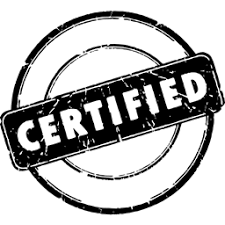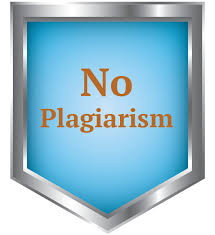At Petrian Editing Service, we understand the critical role that unrestricted questionnaires play in research, surveys, and data c collection. Writing well-structured and clear open-ended questions is essential to gather valuable insights and ensure the success of your project. That's where our team of dedicated editors steps in to assist you. One of our primary strengths lies in the fact that we have a team of highly skilled and experienced editors. Our skilled unstructured questionnaire editors are not just proficient in the nuances of language and grammar, but they also possess a deep understanding of the art and science of questionnaire design. They are well-versed in the intricacies of framing questions that elicit meaningful and unbiased responses from respondents. When you choose our editing services, you're not just receiving grammatical corrections; you're gaining access to a team of experts who can enhance the clarity, coherence, and effectiveness of your open-ended questions. Our professionals are committed to helping you refine your questionnaires, making them more concise and user-friendly, ultimately leading to better data collection outcomes. Whether you are a researcher, a business owner, or a student, we are here to provide you with the best questionnaire editing solutions to ensure your questions achieve their intended responses. Trust us to transform your open-ended questions into powerful tools for gathering valuable insights. Explore our services today, and let us help you elevate the quality of your questionnaires to new heights.
collection. Writing well-structured and clear open-ended questions is essential to gather valuable insights and ensure the success of your project. That's where our team of dedicated editors steps in to assist you. One of our primary strengths lies in the fact that we have a team of highly skilled and experienced editors. Our skilled unstructured questionnaire editors are not just proficient in the nuances of language and grammar, but they also possess a deep understanding of the art and science of questionnaire design. They are well-versed in the intricacies of framing questions that elicit meaningful and unbiased responses from respondents. When you choose our editing services, you're not just receiving grammatical corrections; you're gaining access to a team of experts who can enhance the clarity, coherence, and effectiveness of your open-ended questions. Our professionals are committed to helping you refine your questionnaires, making them more concise and user-friendly, ultimately leading to better data collection outcomes. Whether you are a researcher, a business owner, or a student, we are here to provide you with the best questionnaire editing solutions to ensure your questions achieve their intended responses. Trust us to transform your open-ended questions into powerful tools for gathering valuable insights. Explore our services today, and let us help you elevate the quality of your questionnaires to new heights.
The Importance Of Language And Tone In Questionnaire Editing For Accurate Responses
Language and tone are paramount in questionnaire editing to ensure accurate responses. The choice of words and the overall tone can significantly influence how respondents interpret and answer questions. Here's why they are crucial:
- Clarity: Clear and concise language helps respondents understand the questions' intent. Ambiguity or confusing wording can lead to misinterpretation, resulting in inaccurate responses.
- Bias Mitigation: The tone should be neutral and unbiased to avoid leading questions or encouraging socially desirable responses. Biased language can skew results, rendering them unreliable.
- Cultural Sensitivity: Language must be culturally sensitive to accommodate diverse backgrounds. Inappropriate language or tone can alienate certain groups, affecting response rates and data quality.
- Comfort and Trust: A friendly and respectful tone fosters a comfortable environment, encouraging respondents to provide honest answers. A harsh or judgmental tone may deter candid responses.
- Response Consistency: Consistency in language and tone across questions maintains a uniform experience, reducing response variability due to external factors.
- Respondent Engagement: Engaging language can maintain respondents' interest and motivation, minimizing response fatigue and dropout rates.
How Can Our Editing Solutions Enhance The Data Collection Process In Questionnaires?
Our open-ended questionnaire editing help can significantly enhance the data collection process to streamline and improve data quality in the following ways:
- Error Reduction: We can automatically identify and rectify common errors such as misspellings, grammatical mistakes, and inconsistent formatting in respondents' open-ended responses. This ensures that the collected data is accurate and error-free.
- Consistency: By enforcing predefined guidelines and standards for data entry, we help maintain consistency across responses. This consistency makes it easier to analyze and interpret the data, as well as compare responses between different respondents.
- Time Efficiency: Manual data cleaning and editing can be time-consuming and prone to human error. Our experts can speed up the process, allowing researchers to focus on higher-level analysis and interpretation rather than routine data cleaning.
- Categorization and Tagging: We can categorize and tag responses based on predefined criteria, making it easier to group and analyze similar responses. This enhances the ability to identify trends and patterns in the data.
- Quality Control: Our experts can flag and prioritize responses that require manual review, such as those with ambiguous or sensitive content. This ensures that potentially valuable data is not overlooked.
Strategies Our Editors Employ To Ensure The Questions Align With Research Objectives
 To ensure that a questionnaire aligns with research objectives, our editors employ several key strategies. They conduct a thorough review of the research objectives, ensuring a deep understanding of the study's purpose and goals. They equally engage in collaborative discussions with the research team to clarify any ambiguities or uncertainties regarding the objectives. This communication ensures a shared vision of the research's core focus. Our editors also employ a systematic approach to question construction, starting with clear and concise language. They avoid leading or biased questions that could inadvertently steer respondents in a particular direction. Additionally, they prioritize questions that directly address the research objectives and eliminate any extraneous or irrelevant queries. Furthermore, our editors assess the questionnaire's overall flow and logic, ensuring that questions are organized in a logical sequence that aligns with the research process. More so, they conduct pilot testing to refine and validate the questionnaire, gathering feedback from a small sample of respondents to identify any potential issues or improvements. These strategies collectively ensure that the questions in the questionnaire effectively serve the research objectives, enhancing the quality and validity of the study's findings. In research and data collection, the open questionnaire stands as a powerful tool for delving into the intricate nuances of human experiences, opinions, and perspectives. Writing questions that are precise, unbiased, and engaging is essential for eliciting meaningful responses and drawing accurate insights from respondents. The value of adhering to best questionnaire editing practices, such as maintaining a consistent tone and style, streamlining language, and conducting thorough editing must be upheld. These practices not only enhance the questionnaire's readability but also contribute to the overall professionalism and credibility of the research project. The significance of expert editing in questionnaires cannot be overlooked. It serves as the bridge that connects you with the rich tapestry of human perspectives, allowing for deeper understanding and more meaningful analysis. As you embark on your research journey, remember that the quality of your questionnaire editing can make all the difference in the richness of data you collect and the success of your research outcomes. So, embrace the art of meticulous editing, and you'll find yourself on the path to more profound insights and discoveries in your research endeavors.
To ensure that a questionnaire aligns with research objectives, our editors employ several key strategies. They conduct a thorough review of the research objectives, ensuring a deep understanding of the study's purpose and goals. They equally engage in collaborative discussions with the research team to clarify any ambiguities or uncertainties regarding the objectives. This communication ensures a shared vision of the research's core focus. Our editors also employ a systematic approach to question construction, starting with clear and concise language. They avoid leading or biased questions that could inadvertently steer respondents in a particular direction. Additionally, they prioritize questions that directly address the research objectives and eliminate any extraneous or irrelevant queries. Furthermore, our editors assess the questionnaire's overall flow and logic, ensuring that questions are organized in a logical sequence that aligns with the research process. More so, they conduct pilot testing to refine and validate the questionnaire, gathering feedback from a small sample of respondents to identify any potential issues or improvements. These strategies collectively ensure that the questions in the questionnaire effectively serve the research objectives, enhancing the quality and validity of the study's findings. In research and data collection, the open questionnaire stands as a powerful tool for delving into the intricate nuances of human experiences, opinions, and perspectives. Writing questions that are precise, unbiased, and engaging is essential for eliciting meaningful responses and drawing accurate insights from respondents. The value of adhering to best questionnaire editing practices, such as maintaining a consistent tone and style, streamlining language, and conducting thorough editing must be upheld. These practices not only enhance the questionnaire's readability but also contribute to the overall professionalism and credibility of the research project. The significance of expert editing in questionnaires cannot be overlooked. It serves as the bridge that connects you with the rich tapestry of human perspectives, allowing for deeper understanding and more meaningful analysis. As you embark on your research journey, remember that the quality of your questionnaire editing can make all the difference in the richness of data you collect and the success of your research outcomes. So, embrace the art of meticulous editing, and you'll find yourself on the path to more profound insights and discoveries in your research endeavors.
Help with Editing a Questionnaire with an Open-Ended Approach
 Writing an actual open questionnaire is a critical task for an individual seeking valuable insights from their target audience. However, the process of writing such surveys can be discouraging, as it requires not only a deep understanding of the subject matter but also the ability to frame questions in a way that elicits meaningful and comprehensive responses. If you find yourself in need of assistance to edit an unrestricted questionnaire, you've come to the right place. We understand the importance of precision and clarity in questionnaire design. We recognize that open questions, which allow respondents to provide unstructured responses, can be particularly challenging to construct. The wording, sequence, and phrasing of these questions can greatly influence the quality of the data collected. Therefore, we offer our expertise to help you fine-tune your open questionnaire for optimal results. Our team of experienced professionals specializes in questionnaire design and editing. Whether you're embarking on a research project, customer survey, or employee feedback initiative, we can assist you in refining your questionnaire to ensure that it effectively captures the insights you seek. With our help, you can be confident that your flexible questions will be clear, concise, and thought-provoking, empowering you to gather valuable information and make informed decisions based on the responses you receive. Don't let the complexities of editing a questionnaire deter you from obtaining the valuable insights you need. Reach out to us today, as we can help to edit an open questionnaire that yields meaningful and actionable results.
Writing an actual open questionnaire is a critical task for an individual seeking valuable insights from their target audience. However, the process of writing such surveys can be discouraging, as it requires not only a deep understanding of the subject matter but also the ability to frame questions in a way that elicits meaningful and comprehensive responses. If you find yourself in need of assistance to edit an unrestricted questionnaire, you've come to the right place. We understand the importance of precision and clarity in questionnaire design. We recognize that open questions, which allow respondents to provide unstructured responses, can be particularly challenging to construct. The wording, sequence, and phrasing of these questions can greatly influence the quality of the data collected. Therefore, we offer our expertise to help you fine-tune your open questionnaire for optimal results. Our team of experienced professionals specializes in questionnaire design and editing. Whether you're embarking on a research project, customer survey, or employee feedback initiative, we can assist you in refining your questionnaire to ensure that it effectively captures the insights you seek. With our help, you can be confident that your flexible questions will be clear, concise, and thought-provoking, empowering you to gather valuable information and make informed decisions based on the responses you receive. Don't let the complexities of editing a questionnaire deter you from obtaining the valuable insights you need. Reach out to us today, as we can help to edit an open questionnaire that yields meaningful and actionable results.
Innovative Approaches Or Techniques Suitable For Editing Questionnaires
Editing open questionnaires is a crucial step in the data collection process, ensuring that the responses are clear, coherent, and free from errors. Here are some innovative approaches and techniques to consider:
- Natural Language Processing (NLP) Tools: Employ NLP algorithms and tools to automatically identify and correct grammatical errors, spelling mistakes, and inconsistencies in responses. NLP can also be used to categorize and code open-ended responses based on common themes or sentiments.
- Sentiment Analysis: Implement sentiment analysis algorithms to assess the emotional tone of responses. This can help identify potential biases or emotional outliers in the data, allowing for a more nuanced analysis.
- Text Clustering: Use text clustering techniques to group similar responses together, aiding in the identification of common patterns or themes in the data. This can streamline the analysis process by reducing redundancy.
- Machine Learning-Based Response Classification: Develop machine learning models that automatically classify open-ended responses into predefined categories or topics, enabling faster data organization and analysis.
- Interactive Editing Platforms: Create user-friendly online platforms that allow both human editors and automated tools to collaboratively edit questionnaire responses. These platforms can incorporate real-time suggestions and feedback to improve the quality of responses.
- Crowdsourcing: Leverage crowdsourcing platforms to have multiple individuals review and edit open-ended responses. This can provide diverse perspectives and enhance the quality of data cleaning.
- Visual Analytics: Utilize data visualization techniques to represent open-ended responses graphically, making it easier to identify trends, outliers, and inconsistencies. Interactive dashboards can facilitate exploration and editing.
- Semantic Analysis: Apply semantic analysis to understand the underlying meaning of responses, enabling more nuanced editing that goes beyond surface-level errors to capture the essence of participants' feedback.
- Version Control: Implement version control systems to track changes made during the editing process, ensuring transparency and enabling collaboration among editors.
- Continuous Quality Monitoring: Develop automated monitoring systems that continuously assess the quality of open responses during data collection, flagging potential issues in real-time for immediate correction.
How Can Our Editing Improve The Clarity And Effectiveness Of An Unrestricted Questionnaire?
If you need help with editing a questionnaire with an open-ended approach, we are a suitable choice for experts. We will help you ensure the clarity and effectiveness of your questionnaire, by guiding you on how to employ the best strategies. Ensure that each question is concise and specific, avoiding jargon or overly complex language. Use unambiguous wording to minimize the risk of misinterpretation. Additionally, provide context or instructions when necessary to guide respondents on how to answer. Group related questions together to maintain a logical flow and prevent redundancy. Consider the order carefully, starting with more straightforward and general inquiries before delving into more complex or sensitive topics. Maintain a neutral and unbiased tone throughout to encourage honest responses. Also, ensure to pre-test the questionnaire with a diverse group of individuals to identify any potential issues and make necessary revisions. This process of refining language, structure, and overall design will ultimately improve the questionnaire's clarity and effectiveness, leading to more valuable and insightful responses from your participants.
The Impact Of Well-edited Exploratory Questionnaires On The Overall Success Of The Results
Well-edited questionnaires can have a profound impact on the overall success of research results. These questionnaires are designed to collect qualitative data, which can provide valuable insights into complex issues. Here are some key ways in which perfect open questionnaires contribute to research success:
- Clarity and Consistency: Correct questionnaires ensure that questions are clear, concise, and free from ambiguity. This clarity reduces the chances of misinterpretation by respondents, leading to more accurate and reliable data.
- Relevance: Expert editors can help to ensure that questions are relevant to the research objectives. Irrelevant or redundant questions can lead to data overload and dilution of meaningful insights.
- Depth of Responses: Editing can encourage respondents to provide more thoughtful and detailed answers. Well-crafted questions can stimulate critical thinking and elicit richer, more nuanced responses.
- Reduced Bias: Careful editing minimizes leading or biased language, preventing the questionnaire from inadvertently influencing respondents' answers. This promotes the collection of unbiased and objective data.
- Data Quality: High-quality editing can help identify and rectify errors, such as typographical mistakes or formatting issues, which can compromise the integrity of the data.
- Consistency Across Respondents: Best editing ensures a consistent experience for all respondents, reducing variability in responses due to differences in question phrasing or formatting.
- Analysis Efficiency: Clean, well-edited data is easier to analyze, saving researchers time and resources during the data analysis phase.
 The process of questionnaire creation may seem straightforward at first, but the nuances of open-ended questions can make a significant difference in the quality and depth of the responses obtained. Collaborating with our skilled editors or experts in the field ensures that your questionnaire is finely tuned to elicit rich and valuable information from respondents. With our professional support, you can enhance the clarity, relevance, and coherence of your questions, ultimately improving the overall effectiveness of your research. We can help you strike the delicate balance between open-endedness and specificity, ensuring that your questions encourage thoughtful and insightful responses without overwhelming participants. Moreover, we can aid in eliminating potential biases, ambiguities, or leading phrasing, which might inadvertently skew the data. The result is a meticulously crafted questionnaire that not only respects the respondents' perspectives but also helps you gain a deeper understanding of the subject matter. When dealing with a questionnaire featuring an open-ended approach, availing oneself of editing support is a prudent investment in the quality and integrity of your research. It empowers you to collect valuable data that can drive meaningful insights and contribute significantly to your project's success.
The process of questionnaire creation may seem straightforward at first, but the nuances of open-ended questions can make a significant difference in the quality and depth of the responses obtained. Collaborating with our skilled editors or experts in the field ensures that your questionnaire is finely tuned to elicit rich and valuable information from respondents. With our professional support, you can enhance the clarity, relevance, and coherence of your questions, ultimately improving the overall effectiveness of your research. We can help you strike the delicate balance between open-endedness and specificity, ensuring that your questions encourage thoughtful and insightful responses without overwhelming participants. Moreover, we can aid in eliminating potential biases, ambiguities, or leading phrasing, which might inadvertently skew the data. The result is a meticulously crafted questionnaire that not only respects the respondents' perspectives but also helps you gain a deeper understanding of the subject matter. When dealing with a questionnaire featuring an open-ended approach, availing oneself of editing support is a prudent investment in the quality and integrity of your research. It empowers you to collect valuable data that can drive meaningful insights and contribute significantly to your project's success.






